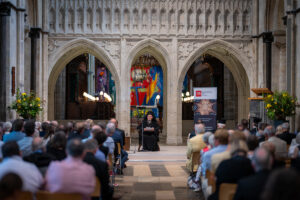Persecution of Christians in Turkey: the discrimination, harassment, and worse that Christians in Turkey experience in our age is only the latest manifestation of a sadly recurring hatred. Over 1,000,000 Greek Orthodox Christians, as well as 1.5 million Armenians and 300,000 Assyrians, were massacred in the Ottoman Empire and its successor state, the Republic of Turkey, during the period of the Armenian, Greek, and Assyrian genocides. Hundreds of thousands of people were forcibly converted to Islam. To this day, the Turkish government refuses to acknowledge this atrocity as a genocide, saying that it was simply a religious conflict between Christians and Muslims. As we continue to see our own Mother Church of Constantinople suffering from religious persecution, we remember these horrifying events, note with sorrow the persecution of Christians in the Middle East and elsewhere today, and pray that such inhumanity will never again be seen anywhere in the world.
For previous ChristianPersecution.com coverage of the persecution of Christians in Turkey, see here.
“New Report: Turkish Judiciary Tool of Pressure,” International Christian Concern, April 29, 2020:
04/29/2020 Turkey (International Christian Concern) – Amnesty International’s annual human rights report notes that Turkey’s judiciary remains a tool of pressure despite so-called reforms which passed through parliament. The judiciary’s targeting of real or perceived dissent was cited as a significant problem, as well as pretrial detention used punitively to silence dissent and journalist work cited as criminal evidence. The report also noted the dozens of human rights activists who were imprisoned because of their work.
These problems underscore each of the difficulties faced in advancing religious freedom in Turkey. The genocide a century ago towards Christians has never been addressed. While Turkey is no longer murdering Christians en masse, the policies which led and contributed to the genocide remain. It has effectively blocked Christians from having a legal identity and exercising their rights as Turkish citizens. Since the judiciary is used as a tool of pressure against dissent and Turkey’s current government finds its political identity in Islamic nationalism, the environment strikes fear into many Christians about speaking into religious freedom violations.







